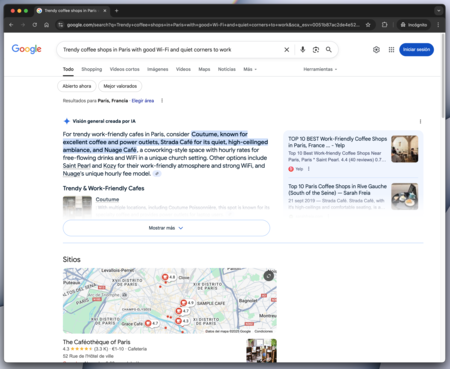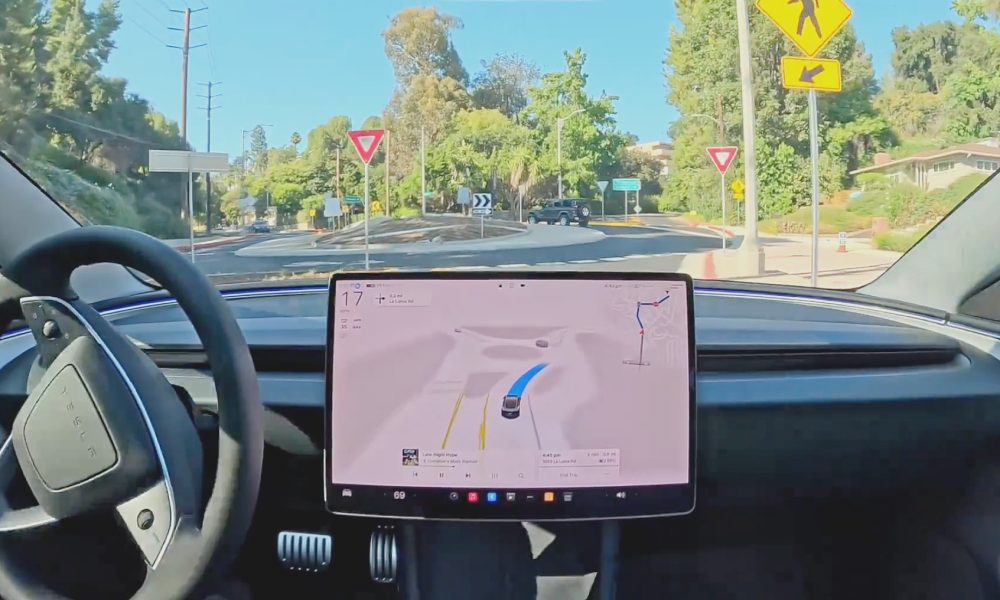The transformation is underway. Millions of people around the world are seeing how a New button on Google’s home pagethat same that has marked the internet pulse for decades.
It is not a secondary addition or a tab that goes unnoticed. It is the new AI Mode.
With this movement, artificial intelligence becomes the protagonist of the search experience, displacing the classic formula which has defined the search engine since its origins. And with this there are changes that not only affect users: they also challenge the information industry and Google’s own business model.
From the links to the answers: a jump that changes the rules
AI Mode is available, for the moment, only in English, although its global deployment has already begun. For those who press the aforementioned button, the search engine will stop functioning as until now: the consultations no longer show the lifelong links, but in responses prepared directly by the AI.
The land had already prepared with the Google AI Overviews, generated summaries that occupy the most visible part of the results page. If a couple of years ago you were looking for something like “Cafeterias in Paris with good wifi and quiet corners to work”, Google showed well positioned pagesRecommendations in blogs or forums, and some Google Maps block.

Example of results with Google Ai Overviews
With the Overviews the dynamics changed: before reaching the links, the user was a summary created by AI as the following:
“To enjoy a modern Parisian experience with good wifi and quiet workplaces, consider X place. For its modern environment. X place It also offers a cozy atmosphere. ”
Thus the tool responded, linking to the sources he had used to elaborate the generative summary.
That jump placed the information processed and summarized in the foreground, but also opened a debate: AI can be wrong. His “hallucinations” have already left uncomfortable holders, from non -existent presidents to poorly cited years.
On the other hand, the impact was immediate: less traffic for content creators, less advertising impressions. And this also reaches Google, who still controls much of the advertising that is inserted in third -party sites.
With that context, the launch of AI Mode is another step in this direction. Press the new button, The list of life results disappears.
If we repeat the search for Parisian coffee shops, the answer is no longer limited to a contained recommendation. Now a more elaborate compendium is shown: coworking spaces, specialty coffees, interactive maps, quiet areas to work and even practical advice on how to find the best options.


Example of results with Google AI Mode
In the desktop version some links continue to appear in a reduced module to the right, but the message is unequivocal: Google wants you to solve everything without leaving its ecosystem.
The experience is conversational. You can ask for a specific place, ask for comparatives or add nuances, and The system keeps the thread of conversationfeeding on the web to give you the answer.
Google summarizes it on its official page: “Are you trying to understand a new topic? Are you looking for specific recommendations? Do you need help to decide between two products? Just ask us.”

All this works with Gemini 2.5 in its standard version, although users can access Gemini 2.5 Pro Reasoning capabilities. There comes into Game Deep Research, still in an experimental phase inside Labs, capable of exploring hundreds of pages, analyzing them and generating a report with appointments in minutes.
With AI Mode and AI Overviews, Google takes a radical turn: the search ceases to be a catalog of links to become a response system. And that transition not only redefines how we find information, but opens a new chapter in The balance between the open webthe creators of content and the giant who, to a large extent, controls the entrance door to the Internet.
Images | Google | Screenshots
In WorldOfSoftware | Tiktok stole the searches, Depseek beat them in Ia: Baidu discovers that being “the Chinese google” is no longer enough











